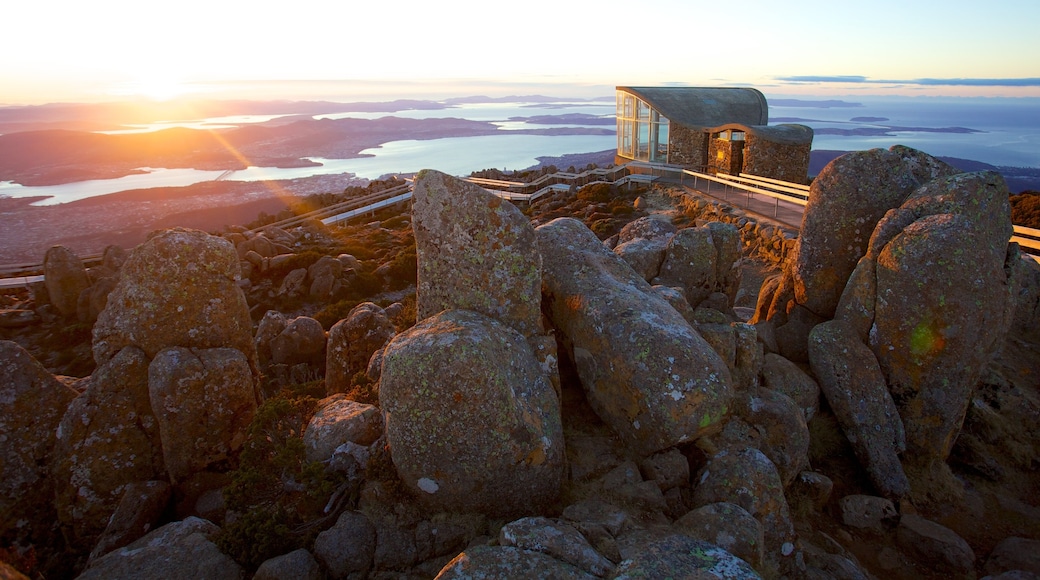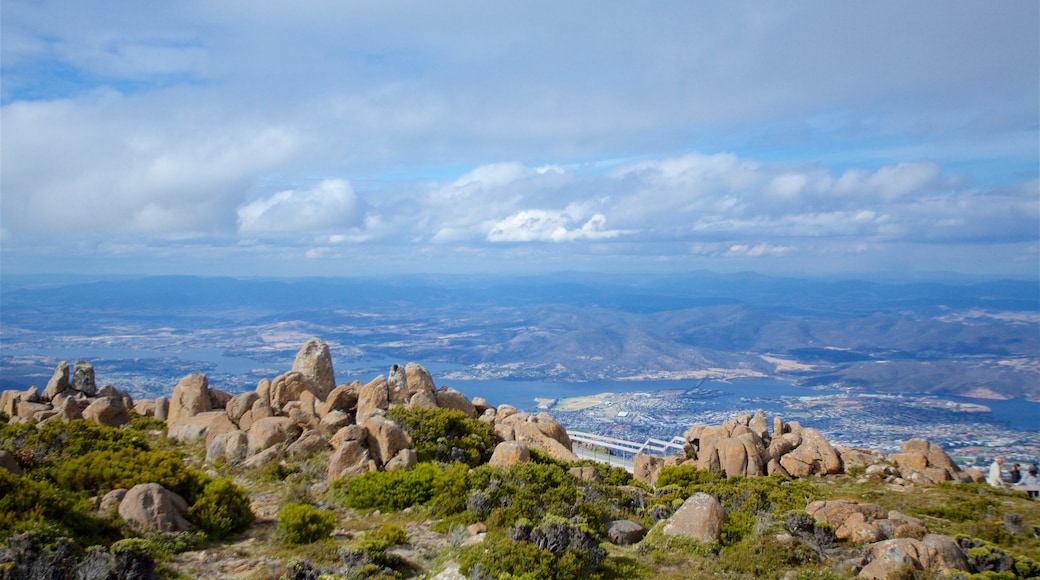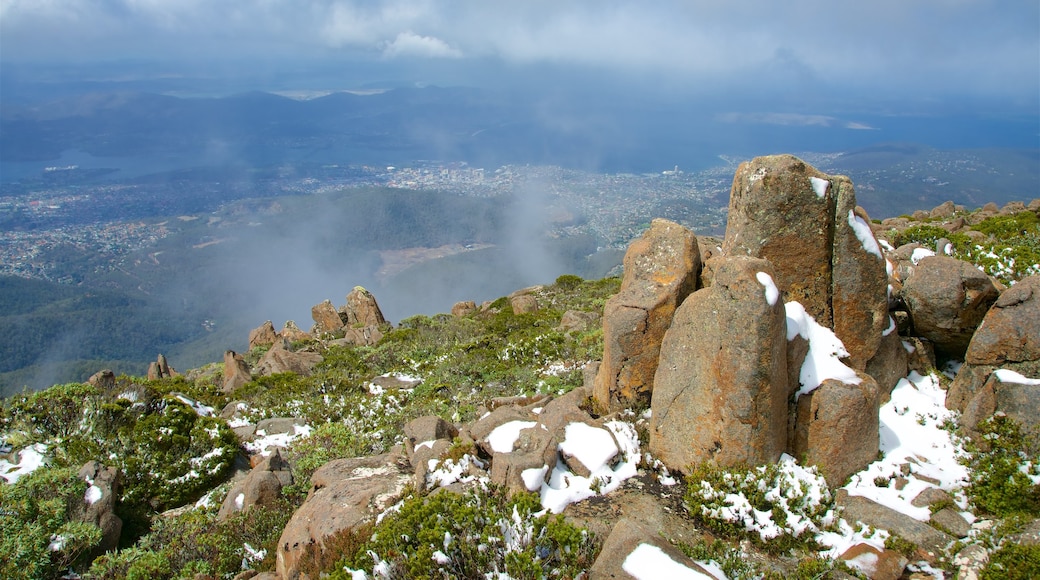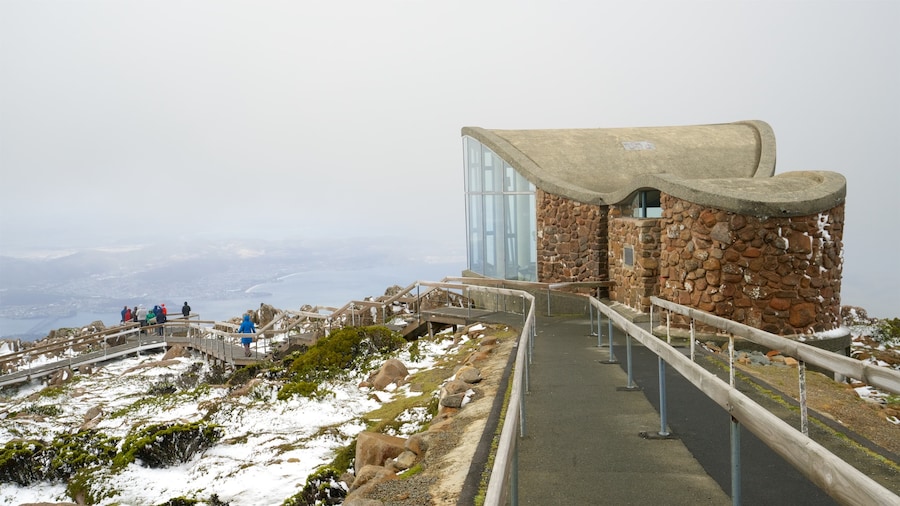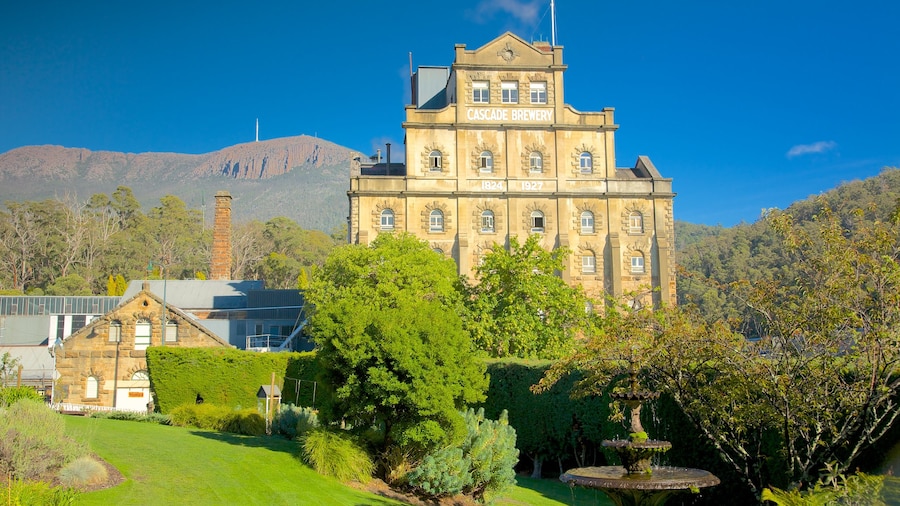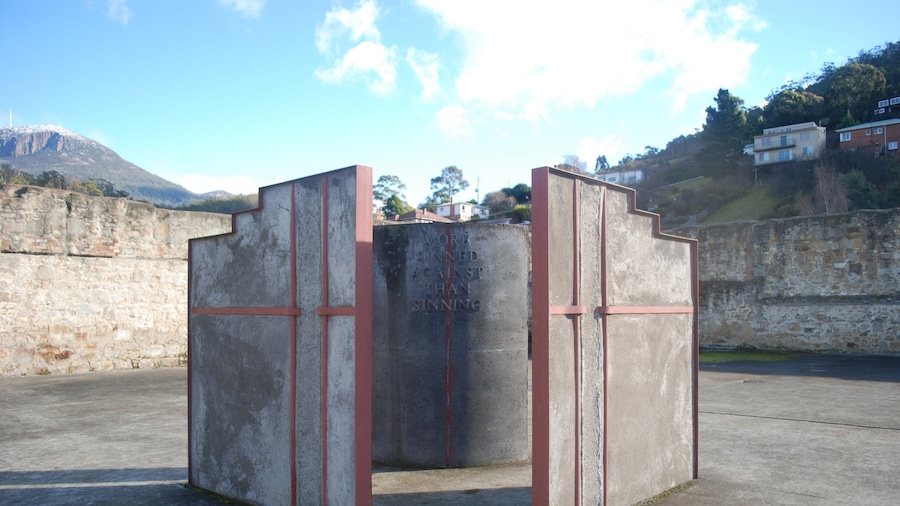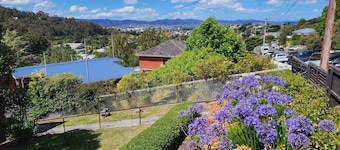Majestic columns of rock rise to the peak of this often snow-capped mountain, providing a playground for nature lovers, and a stunning backdrop for Hobart.
Mount Wellington has been popular with locals as a recreational park since the mid-1800s when huts were built at strategic sites for hikers. Remnants of these huts exist, and some of those built in the 1900s are still in use. Charles Darwin climbed the mountain in 1836 when he visited Hobart on his round-the-world trip on the HMS Beagle. Today the area offers all sorts of outdoor pursuits, from mountain biking to rock climbing.
Temperate rainforest cloaks the lower reaches of the mountain but as the elevation increases subalpine forests and trickling springs take over. Choose from bushwalking trails that range from 20-minute strolls to seven-hour hikes. There are walks to suit every fitness level, but be mindful as some tracks are shared with mountain bikers.
Follow the Radfords Monument & Rocky Whelans Cave track to see a bushranger’s hideout. Rocky Whelan, who terrorized Hobart with several murder-robberies in the mid-1800s, is said to have hid in a cave just below the Springs, before he was captured and hanged in 1855. Radfords Monument is dedicated to George Radford, who died on the mountain while competing in a foot race in 1903.
Take the walk from the Springs to Sphinx Rock for a stunning view of the Organ Pipes, Mount Wellington’s dolerite columns, popular with experienced rock climbers.
At the southwest platform of the Pinnacle, learn about the significance of the mountain for Tasmania’s Aboriginal people, who know it as “kunanyi”. From the Pinnacle you get 360-degree views across Hobart and the Derwent River on a fine day, and an eerie immersion in mist on cloudier days.
It is often considerably colder, and very windy, at Mount Wellington’s peak at 4,166 feet (1,271 meters, so be sure to take warm clothing. Free fire wood is provided at some hikers and picnickers huts. There are no shops or restaurants on the mountain, so pack your own food if you’re planning to make a day of it.

